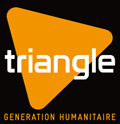Myanmar gained independence at the end of the Second World War and subsequently experienced several successive military dictatorships. In 2011, the military junta launched a process of political and economic transition, and the 2015 legislative elections were widely won by the National League for Democracy, Aung San Suu Kyi’s party.
The country's population is composed of 135 ethnic groups. Since independence, the central government and various « so-called » minority ethnic groups (representing 35% of the population) have been in conflict. However the regime change and the peace process have not ended the clashes, continuing in almost all border regions.
This situation is a priority for the central government and the international community (and therefore attracts funding opportunities). Families fleeing conflict are forced to move to regions that are already facing serious difficulties.
Myanmar has one of the lowest human development indices (148th out of 189). Its population lacks access to essential services and rights (food, education, health, etc.) and is regularly subjected to climatic hazards and frequent natural disasters.
Triangle Génération Humanitaire (TGH) opened its first mission in December 2007, with emergency relief and development activities. In 2008, Cyclone Nargis severely affected the Delta, the south-western part of the country. TGH team participated in the emergency and post-emergency response in this region, and then in Rangoon including programmes to support disabled people).
Since 2012, TGH has concentrated its interventions in the Matupi region (southern Chin State), a mountainous area in the west of the country that is difficult to access. In this region, households use most of their income to buy staple food, and their diet consists mainly of rice. The local deficit in agricultural production and diversification worsened with Cyclone Komen (August 2015), which destroyed most irrigation infrastructure and forced many farmers to withdraw from growing their food plots. TGH improves the living conditions, resilience and livelihoods of isolated rural populations, and promotes the sustainable use and protection of the region's natural resources. In 2018, the team grew from 14 to 20 people, implementing programmes in 33 villages in Matupi canton.
These programmes are setting up modular gabion structures to reduce disaster risks, and improve fencing to provide sustainable protection for cultivated areas. It also enhances access to mechanisation for producers (power tillers, irrigation pumps, etc.). Other activities consist of improving cash crops (mainly Konjac) and off-season market gardening (training, demonstration plots, equipment and materials) to diversify local agricultural production and increase farmers' incomes. In addition, the current development of the region increases pressure on natural resources (construction and fuelwood, stones and sand for construction, hunting and fishing, water for domestic use and irrigation, arable land, etc.), which is often at the expense of communities. Awareness-raising and training actions involve the population - but also local authorities - in sustainable management and resource protection processes.
Since January 2019, TGH has extended its area of intervention to Paletwa Canton, Chin State, whose population has been particularly affected by the recent clashes between the Myanmar Army (Tatmadaw) and the Arakan army. Indeed, during the last quarter of 2018, the upsurge in clashes caused many deaths, injuries and population movements in the region, which already suffers from extreme weather conditions, a lack of opportunities and services, and is regularly affected by natural disasters. TGH has developed two projects to provide an emergency response to IDPs and host communities in 6 villages in Paletwa canton. A multisectoral approach addresses the most urgent needs of displaced populations for education, food security, nutrition, health, protection, health, shelter and essential equipment, while relieving pressure on host communities.
To carry out its activities, TGH has developed several partnerships in the country. A long-standing partner, Ar Yone Oo (AYO) is a Myanmar NGO specialising in rural development, natural resource management, access to drinking water and sanitation. Another emblematic partner, the Groupe de Recherche et d'Échanges Technologiques (GRET) is an international development NGO that works to fight poverty and inequality by providing sustainable and innovative solutions for solidarity-based development. In addition, a partnership have recently been established in the emergency response in Paletwa with Raiki, Foundation for Community Development, a civil society organisation that implements activities in the field.
